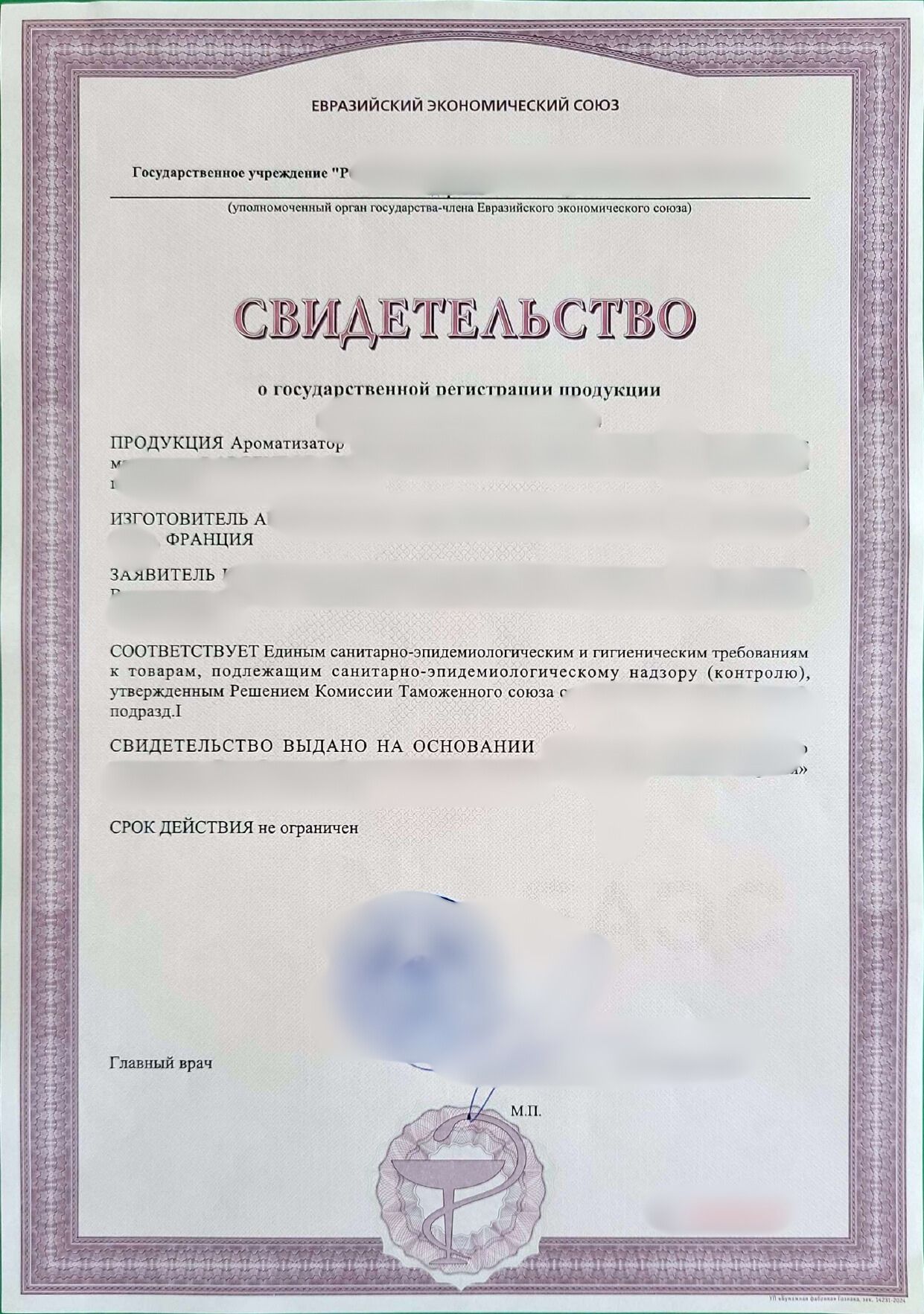The Certificate of State Registration (SGR) is the successor of the former Sanitary Certificate and applies to a closed list of products.
What is a Certificate of State Registration?
The Certificate of State Registration (Свидетельство о государственной регистрации продукции, SGR) is an official sanitary–epidemiological approval required for a defined list of products in the Eurasian Economic Union. It was created by the EAC system as the successor of the old Sanitary Certificate and, in practice, became one of the three documents forming the basis of EAC marking.
Before the introduction of the EAC framework, such products needed both a GOST Certificate and a separate Epidemiological Certificate. Today, the SGR has replaced those procedures: once issued in any one of the five EAEU countries, it allows the product to be marketed throughout the entire Union.
Which products does the SGR apply to?
According to the “List of Products Subject to State Registration” (Decision of the Customs Union Commission No. 299, May 28, 2010), the SGR covers categories such as:
- Food & Beverages: bottled water (including mineral and baby water), energy drinks, dietary foods, sports nutrition, food for infants and pregnant women.
Examples: mineral water, beer, infant formula, protein shakes, dietary supplements. - Cosmetics & Hygiene: 13 categories of cosmetics, oral care products, personal hygiene items.
Examples: creams and lotions, toothpaste, baby bottles, diapers, children’s clothing (first layer). - Chemicals & Disinfectants: disinfectants, insecticides, rodenticides (excluding veterinary use), household chemicals, potentially hazardous chemical and biological substances.
Examples: household cleaners, disinfectant sprays, rodent control products, surface sanitizers. - Food Additives & Ingredients: some flavorings, plant extracts, enzyme preparations, starter cultures, genetically modified food products.
Examples: flavorings for beverages, enzyme powders, GM soy flour, bacterial cultures for dairy products. - Food-contact & Water-treatment Products: materials and equipment in contact with food, water treatment devices for public supply.
Examples: drinking water filters, PE and PVC pipes.
How long is it valid?
At present, SGR certificates are issued with unlimited validity. However, there are several proposals within the EAEU to introduce a five-year validity period.
What are the differences compared to EAC Certificates?
Unlike EAC Certificates of Conformity, the Certificate of State Registration is based on tests carried out in ministerial laboratories. The key difference is that the SGR does not operate with certification schemes: the procedure is identical for all products. In addition, there are no factory audits or inspections for the companies applying for an SGR.
In which country is it best to apply for an SGR?
Any member country of the Eurasian Economic Union can issue a valid SGR, which means the countries are, to some extent, in competition. At the moment, obtaining the Certificate of State Registration is generally more expensive and especially slower in Russia. For this reason, many foreign companies prefer to register their products in countries such as Kyrgyzstan, where procedures are usually faster and cheaper.
How long does it take to obtain an SGR?
While an EAC Declaration of Conformity can often be registered within just a few days (once all technical documents are available), and an EAC Certificate typically takes about a month after delivering the samples in the laboratory, the SGR procedure is much slower. It always exceeds two months.
Free Certificates Review
- Validation of your current certificates
- Regulatory update check
- Guidance on renewal
